RIP James Polk, the Godfather of Austin Jazz
Ray Charles' arranger for ten years started and finished in the Austin clubs
Dr. James Polk, a major figure in the Austin jazz scene since he came up from Corpus Christi in 1959, has passed away at age 83. A keyboardist, also proficient on bass, sax and trombone, Polk was a born band leader whose proteges included members of Passenger, who backed Leonard Cohen on 1979’s Recent Songs and subsequent tours.
In his most recent club gig, Polk played B3 organ at the Continental Gallery’s “Church on Monday” with sax player Elias Haslanger, a residency that lasted more than a decade. Writing for the Statesman in 2012, Brad Buchholz said, “Polk’s clean, spacious organ lines, his prevailing wisdom, set the tone of the entire project. There’s no clutter in his playing, no sense of being in a hurry.” Polk’s mantra: “Don’t forsake the groove.”
Polk left town from ’77-’86 to play organ with Ray Charles, eventually expanding into an arranger/conductor role, but he had a rich musical life in Austin before and after. Unlike jazz greats Kenny Dorham and Gene Ramey, who left Austin right after high school, Polk made his mark right here in the clubs.
After recording a 45 for the Sonobeat label in ‘69, Polk started the Twink label to put out his records, but retired from the music business in 1973 to work for IBM. He missed playing, however, and when younger players sought him out he was back behind the keyboards again on weekends in ‘75, and then fulltime by the next year.
Austin’s jazz scene was happening in the mid-to-late-’70s, with the Casablanca and Blue Parrot clubs at 15th and Lavaca, Mackedrick’s Treehouse on Dawson at Barton Springs, Piggy’s on Congress, Buffalo Grille on W. Sixth, and the pre-roof Liberty Lunch. Dr. Polk, who earned that title as an educator at Texas State, was the most highly-regarded musician in the bunch.
A child of piano-playing parents, Polk was taught violin in grade school, and played trombone in the Coles High School band. He first played out as a 13-year-old blues pianist at the Green Frog Lounge in Corpus. He also played bass, well enough for Lionel Hampton to take him on a world tour. The gig started at San Antonio’s HemisFair in 1968, when Hamp’s bassist didn’t show up, and the vibe great plucked Polk from the house band. He could also play sax well, but keyboards were his kingdom.
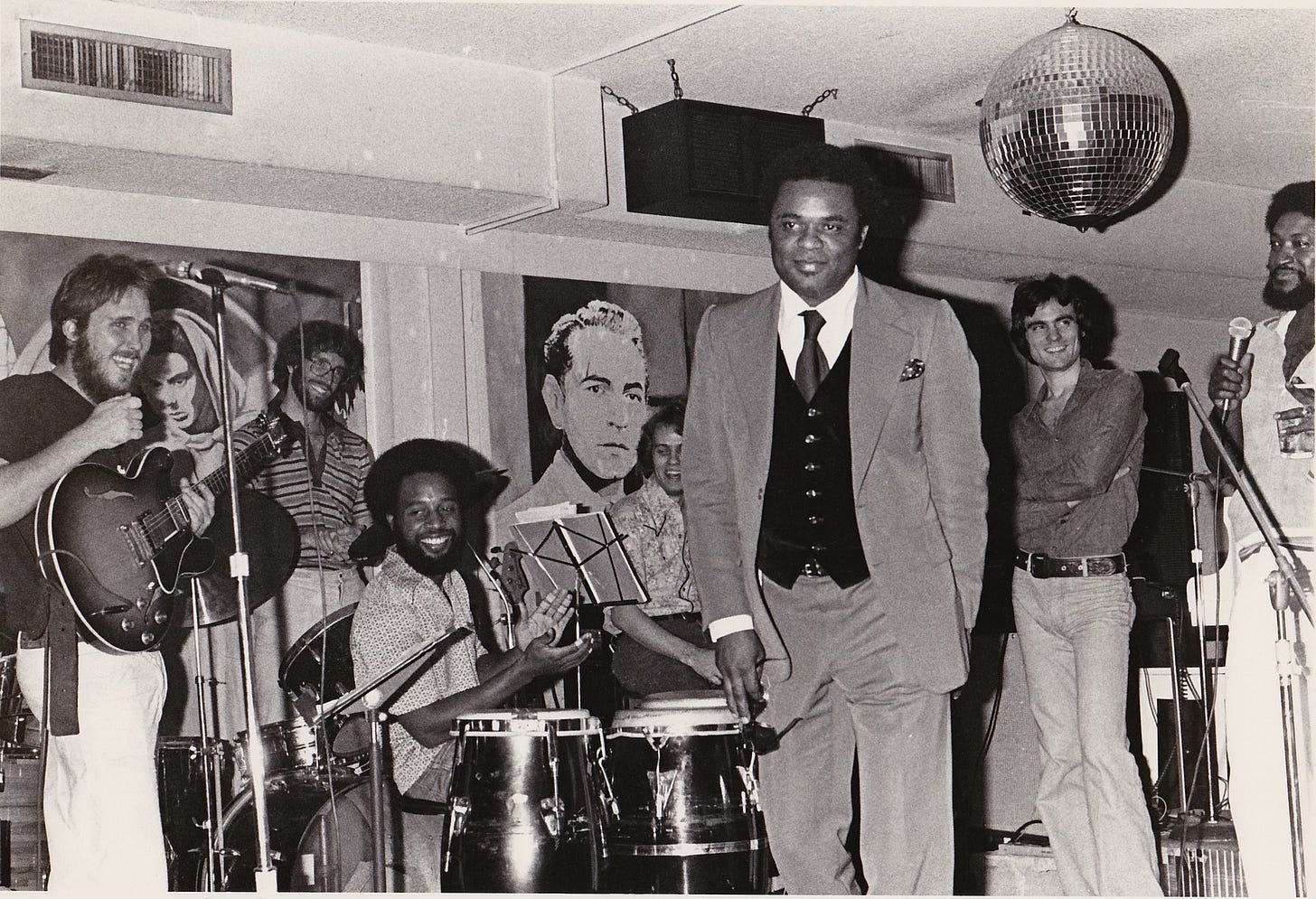
Polk was also a member of the popular Blue Crew, with drummer Gerry Storm and Brazilian bassist Luis Natalicio (a UT professor), and led an octet, featuring Pat Murphy, Fred Smith, and Melvin Scott on saxes, Bob Bruno on bass, and either John Whitehurst or Leotis Duffy on drums. Polk and experimental accordionist Bob Sardo were the two most prolific bandleaders in the Austin jazz scene of the ‘60s.
His ’60s soul/jazz band James Polk and the Brothers, featuring trumpeter Martin Banks from the Apollo house band, would play weekends at the Hideaway Club on E. 19th, but they had trouble getting booked west of the freeway because they drew an African-American audience. “Owners were scared Black people would burn down their clubs,” Polk told the Statesman in 1977. He integrated the Brothers in the early ’70s, with Lubbock natives Angela Strehli on vocals and John X. Reed on guitar, plus bassist Don Lupo (ex-Babycakes), and got booked downtown at Muther’s, before it became Castle Creek. “I used to go and see him perform before I was a professional,” Strehli said of Polk to Blues Blast magazine. “To be in a band of his was just an instant education about the tools you need to run one yourself.” Which she and W.C. Clark did next with Southern Feeling in 1972.
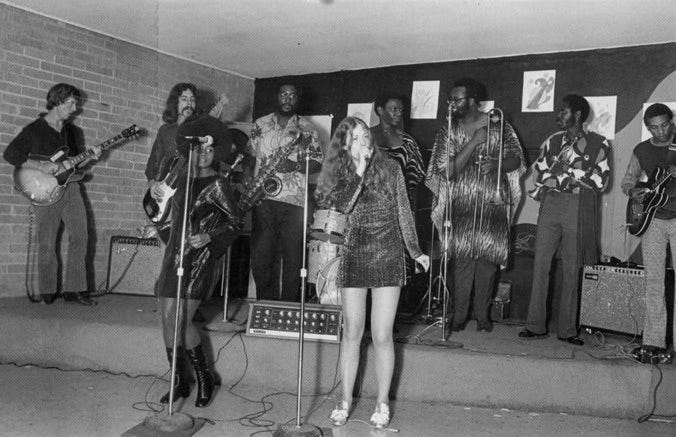
That the audience was non-existent at Casablanca in the beginning made James Polk’s group of young Caucasians better. “He’d stop right in the middle of a song and come over and play the beat that he wanted,” drummer Steve Meador recalled. It was taken in the spirit of instruction and used for improvement. These jazz kids in their twenties, including guitarist Mitch Watkins and bassist Roscoe Beck, were looking for mentorship, and they got a great one. Within months, the Casablanca was packed. A live recording of “Polk Chops” from that era is high-energy jazz at its funkiest. “Nobody could ever accuse us of laying back,” Beck said with a laugh.
Passenger sax player Paul Ostermayer recently posted this soundcloud link to James Polk Quintet, a jazz group with funky drive, recorded live at Casablanca in 1977. “Rated X” is hardcore musicianship you can dance to. (Note: Tomas Ramirez is the other sax player on this track. Second piano solo may be Bill Ginn.)
Polk grew up on the Gulf Coast enthralled by the R&B he heard on the radio and from touring acts like Percy Mayfield and Charles Brown. In college at Huston-Tillotson in 1960, he played blues at the Flamingo Club (1203 Chicon St.), but his passion was turning to the adventurous jazz of John Coltrane, Ornette Coleman and Thelonious Monk. Polk tried to change his style at the Flamingo to freeform jazz, but the crowd wouldn’t have it. “We can’t dance to that shit!” Polk settled in the middle ground- jazz with an R&B groove- that would become his trademark.
“I never wanted to get so far out that the masses didn’t understand my music,” Polk told Ronald Powell in an October 1977 Statesman article titled “Jazzman James Polk Finds His Audience.” Soon after that article ran, Ray Charles found James Polk.
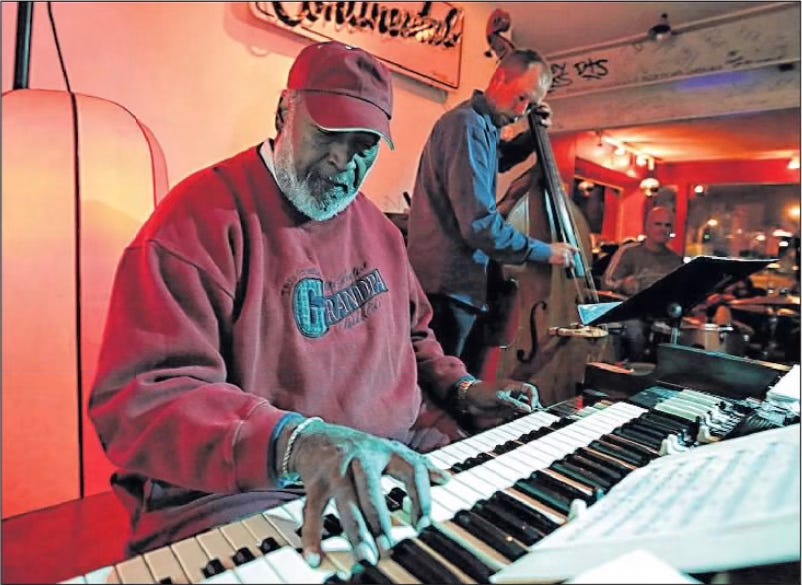
Polk’s legacy is in leading. A teacher and music director at Booker T. Washington High in Elgin after graduating from H-T in ‘62, Polk has always been a natural instructor. When he returned to his hometown two years later to play the Corpus Christi Jazz Festival, his 16-piece band was made up almost entirely of his high school students. He then went on to teach a whole generation of notable jazz players. In the ‘90s he was associate director of jazz studies at SWTS, before it became Texas State. His honorary doctorate came from Huston Tillotson.
After 10 years in L.A., where Ray Charles was based, Polk returned to Austin and dove right back into the club scene. His Polk & Beans duo with bassist Beans Richardson played the Aug. ‘89 opening of the Top of the Marc on West Sixth. Polk also played the 1991 opening week of the Elephant Room. The younger cats would sit behind him so they could watch his hands.
Protege Haslanger said of Polk in 2022: “I started Church on Monday in 2011 for one purpose and that was to play music with this great man, Dr. James Polk…He is one of the most giving and gracious people you’d ever want to meet who is always up for playing music, as long as there’s good music to be made. I am honored to call him a mentor and friend. I’d say conservatively we’ve played 500 gigs together over the years and every one of them has been an amazing experience.”
WATCH: Dr. Polk plays a concert with Centerpeace for his 80th birthday.



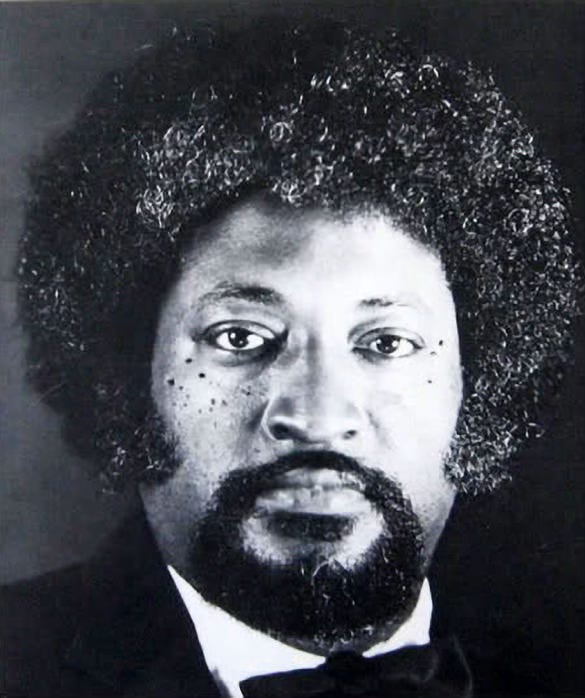
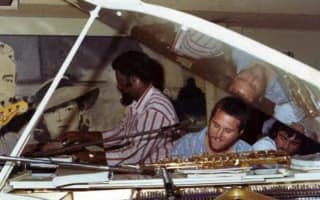
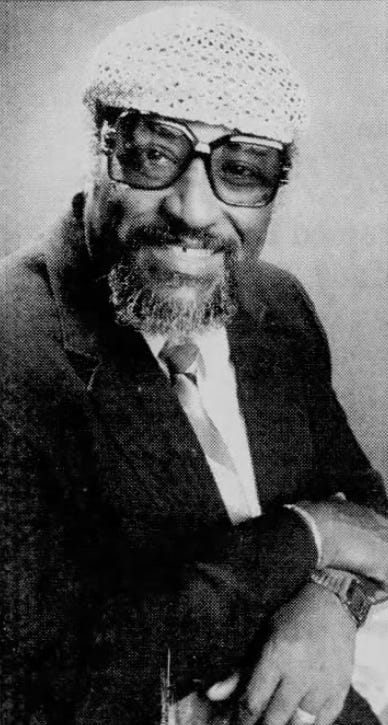
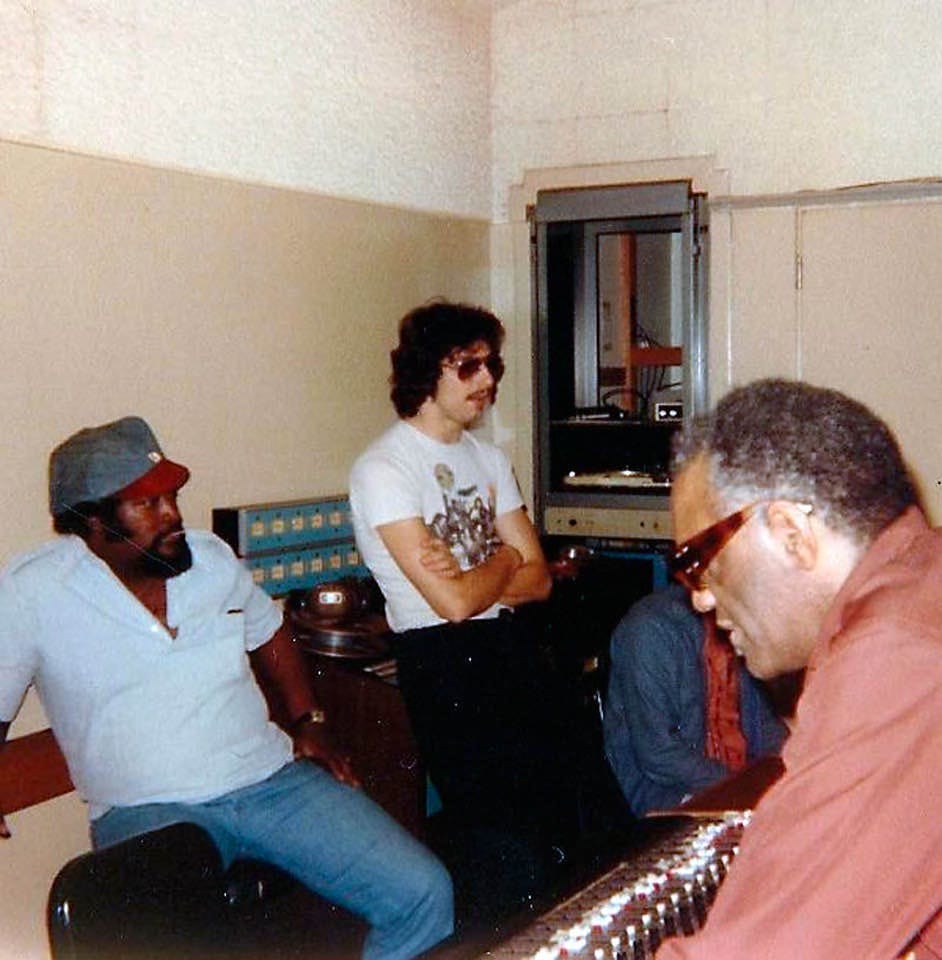
Sorry, subscribers, I didn't mean to send this out while it was still being edited.
I played many, many gigs with James as a member of his groups, with the Toby Anderson Band, as sidemen on other gigs, and with him as a member of groups I put together. I can't begin to express how much his musicianship, acceptance, humor, and camaraderie meant to me. RIP, boss.